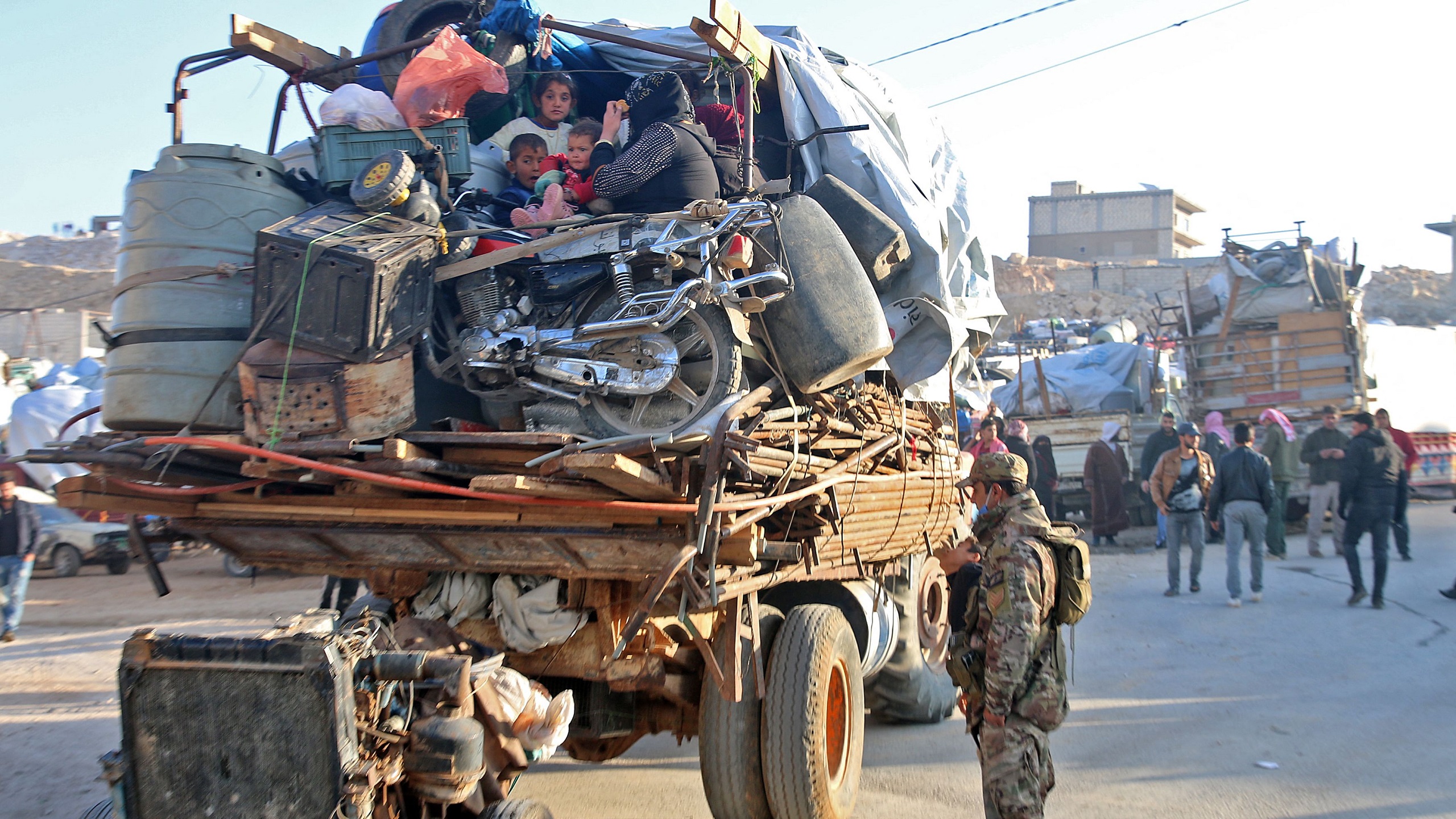Syrian Refugees in Lebanon Begin Their Return
Desperate to escape the civil war, 1.5 million Syrians found refuge in neighboring Lebanon, but they were widely blamed for the economic crisis there. Many who return to their native land will remain displaced from their homes.
The repatriation of Syrian refugees living in Lebanon resumed on Wednesday as hundreds of them crossed the border with all their belongings, into the country from which they once fled because of the civil war.
According to the UN High Commissioner for Refugees, Lebanon hosts more refugees per capita than any other country in the world. The Lebanese government estimates that this country of almost 7 million citizens hosts about 1.5 Syrian refugees, nearly half a million Palestinian refugees, and a few thousand refugees from other countries.
The Lebanese government launched a campaign in 2018 to reduce the number of Syrian refugees in the country. It was later halted due to the COVID-19 pandemic and resumed on Wednesday.
Maj. Gen. Abbas Ibrahim, director-general of Lebanon’s internal security and intelligence agency, the Lebanese General Directorate of General Security, said in a press conference on Tuesday, “The return of Syrians to their land is a national obligation” for Lebanon. Meanwhile, the government on Tuesday called for the international community to aid the refugees in this process.
Sahar Atrache is the Syria Team lead at The Shaikh Group, a political consultancy focused on the MENA region, and a former senior advocate for the Middle East at Refugees International, a Washington-based nongovernmental organization that advocates on behalf of displaced people and stateless people. She told The Media Line that the living conditions of Syrian refugees in Lebanon are “deplorable” and said that more than 90% of them live in poverty.
The last few years have been especially difficult as the country has sunk into a devastating socioeconomic crisis, which has been described as one of the world’s worst in more than 150 years. “There is undoubtedly a sense of despair among Syrian refugees in Lebanon, which is driving many of them to return to Syria,” Atrache said.
They still feel much safer in Lebanon than in Syria
However, “Abed” (not his real name), a Syrian refugee in Turkey who works for the empowerment of refugees and internally displaced people, told The Media Line that the refugees were not leaving Lebanon voluntarily, despite their very difficult situation there. “They still feel much safer in Lebanon than in Syria,” he said.
Atrache explained that numerous factors were driving Syrian refugees to leave Lebanon. She cited the socioeconomic crisis, pressure and discrimination from the government, and abuse from politicians, government representatives, and large segments of society.
Give the gift of hope
We practice what we preach:
accurate, fearless journalism. But we can't do it alone.
- On the ground in Gaza, Syria, Israel, Egypt, Pakistan, and more
- Our program trained more than 100 journalists
- Calling out fake news and reporting real facts
- On the ground in Gaza, Syria, Israel, Egypt, Pakistan, and more
- Our program trained more than 100 journalists
- Calling out fake news and reporting real facts
Join us.
Support The Media Line. Save democracy.
“Authorities in both countries appear to be coordinating and facilitating the recent waves,” she said.
Atrache said that politicians in Lebanon “have manipulated the presence of the refugees in order to blame the economic crisis on them, misleading many Lebanese to believe that their departure will help improve Lebanon’s socioeconomic situation, as well as its infrastructure.”
Furthermore, she noted that the two countries’ history has resulted in the development of stereotypes on both sides. The perception of Syrian refugees in Lebanon, she said, reflects the country’s segmentation and divisions.
Given that the vast majority of refugees are Sunnis, said Atrache, “many people only see them through a sectarian lens. Others have used them in political or security battles with or against the regime.”
Abed believes the refugees arriving in Syria will find no absorption plan for them whatsoever.
The plan to return refugees to Syria, he says, is purely a political decision that disregards any other considerations.
“This is supported by the huge waves of displacement that we have seen recently from Syrian-controlled areas to places abroad such as Africa, or Irbil in Iraq,” he said.
We know that many refugees do not return to their hometowns. So they remain displaced in their own country.
Atrache said there was no clear information on whether the Syrian government had an absorption plan for the returning refugees. “All I can say is that we know that many refugees do not return to their hometowns. So they remain displaced in their own country.”
“In Syria,” she added, “they are more likely to go through the same hardship, if not worse, and often lack any opportunity to lead a better life.”
Abed believes that upon their arrival, some of the refugees will join the Syrian army – either voluntarily, under government-enforced conscription, or forced by the need for an income. Others may work in agriculture or livestock or find other sources of income.
Atrache said the Syrian refugees who are forced to leave Lebanon have no choice but to return to Syria.
Unfortunately, she said, “the majority of the world has closed its doors in the face of Syrians. Except for a very few, most countries are no longer accepting Syrian refugees. As a result, their options are extremely limited.”
However, she noted that “because the living conditions and prospects for a better life in both Lebanon and Syria are doomed, I believe that many will continue to try other options, including taking to the sea and risking their lives, as we have seen in the past and in recent months.”



